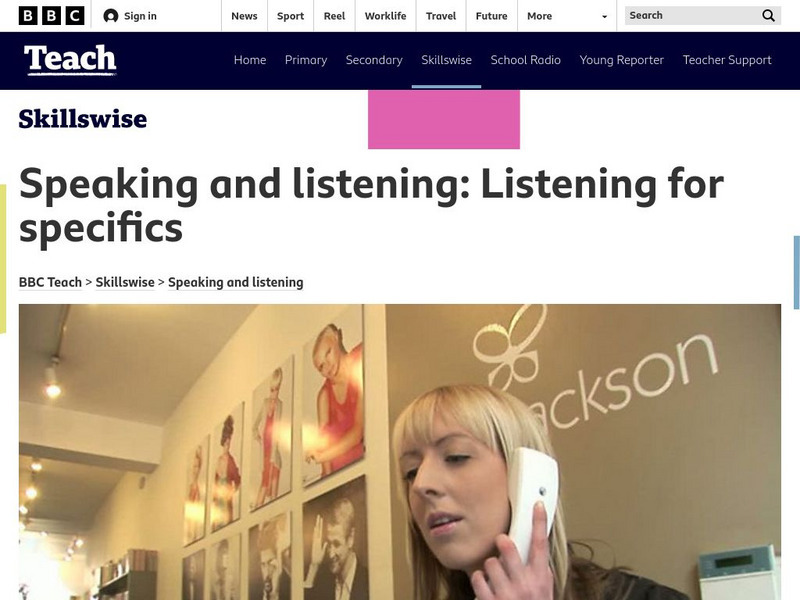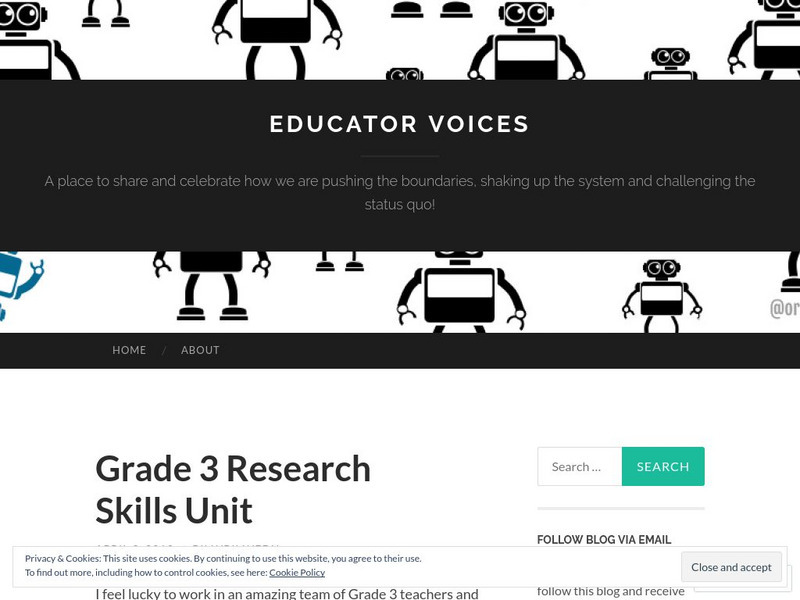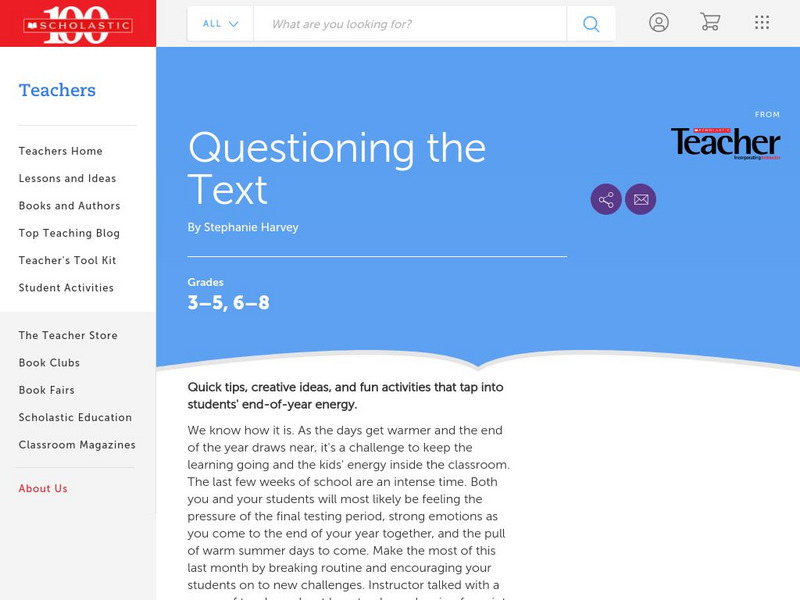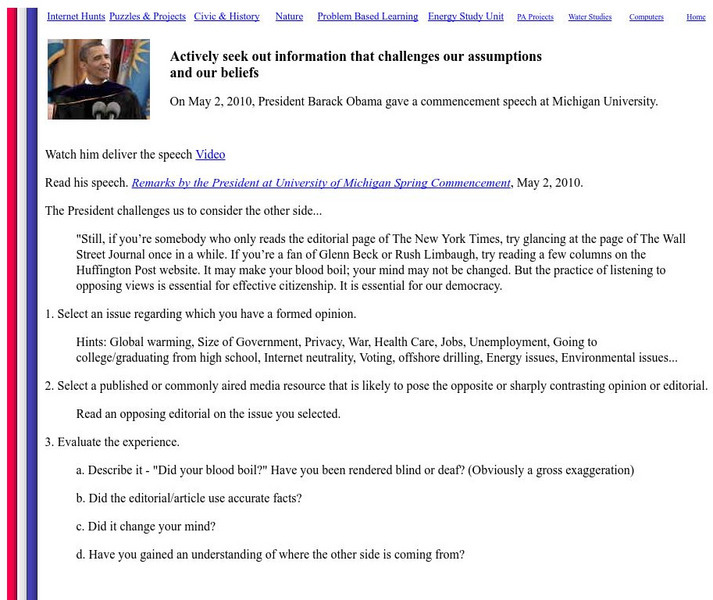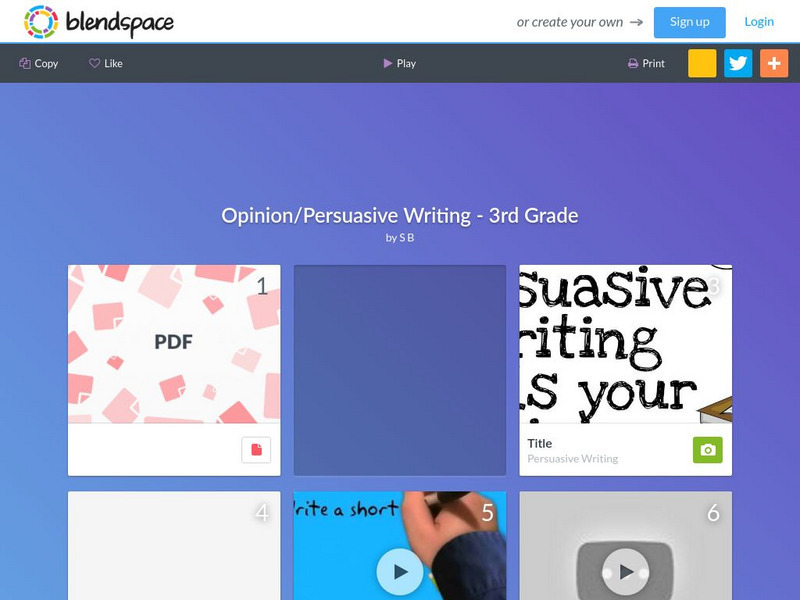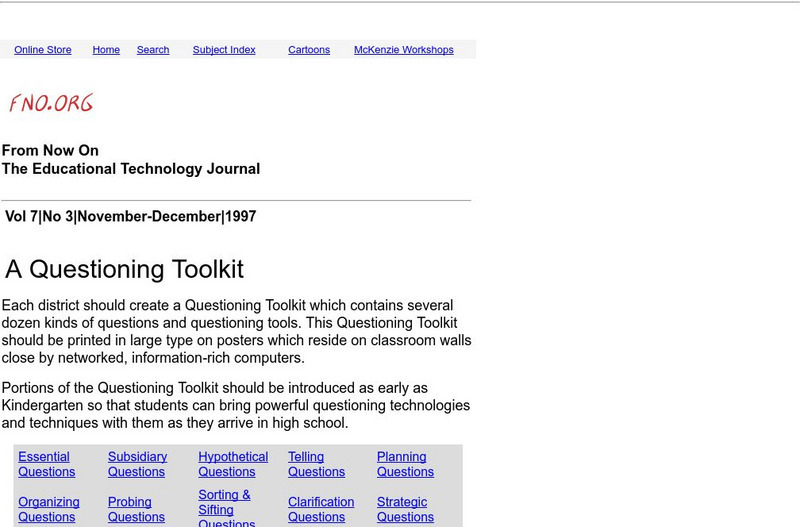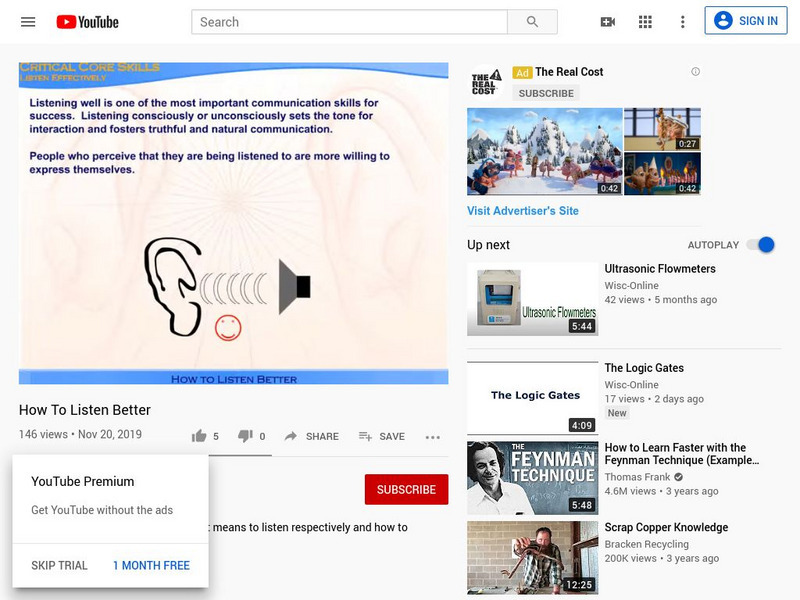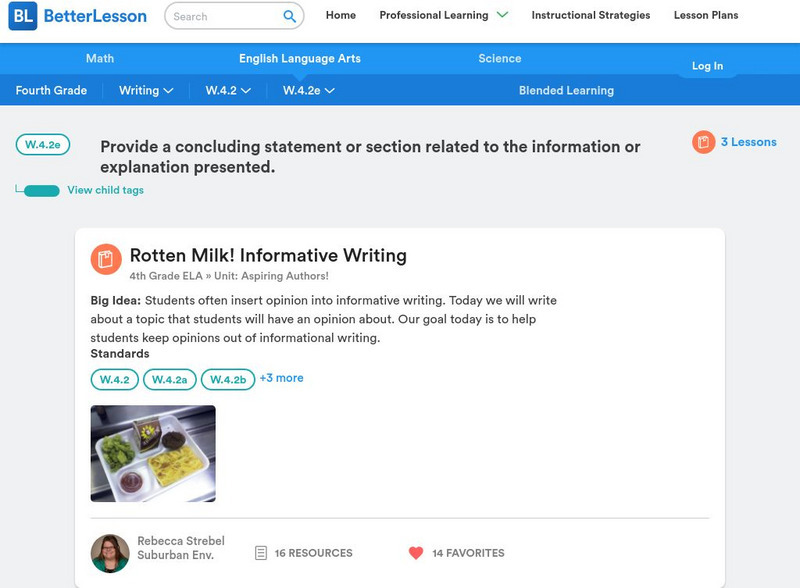BBC
Bbc Skillswise: Listening for Specific Information
This tutorial presents a video, factsheets, and worksheets for learning how to listen for and understand information. It looks at how to handle different situations, e.g., arranging a delivery, asking questions about a product before...
Better Lesson
Better Lesson: Researching a Topic: Teaching Students to Research Information
Students will conduct a short research project about a topic. This lesson focuses on how to find the information needed on their chosen topic.
Other
Educator Voices: Grade 3 Research Skills Unit
Describes the process teachers went through to create a lesson unit where students first brainstormed what it means to do research, then were tasked with choosing a topic, researching it, and presenting on it several days later. The...
FNO Press
Fno.org: Inspired Investigations
An article at From Now On about how to help students do better research by changing the focus of research assignments and teaching students to ask essential questions. Some suggestions include using mind mapping, and using Inspiration to...
Michigan State University
Michigan State University: Interventions for Reading Strategies: Qar Strategy
This Michigan State University site suggests three question-answer relationships strategies, rather than four, leaving out "author and you." Includes examples of each relationship, steps for teaching, and assessment.
Scholastic
Scholastic: Questioning the Text
In this magazine article originally featured in Instructor, the reading strategy called "questioning the text" is explained by the renowned literacy consultant and staff developer, Stephanie Harvey. The steps included for questioning the...
Cynthia J. O'Hora
Mrs. O's House: Actively Seek Out Information That Challenges Our Beliefs
Based upon a speech delivered by President Barack Obama, this activity encourages students to check out the "flip side" of issues before making up your mind.
Curated OER
Mc Graw Hill: Part 2 Reading: Informational Text: Evaluate Arguments and Claims
This article will help you evaluate informational text to determine whether an author's argument is supported by evidence or not. Click on Model to see a model with explanations and then click on Practice.
Other
Reading Educator: Question Answer Relationships
Based on the presumption that every teacher shares responsibility for teaching reading, this page offers a brief look at question-answer relationships, as well as suggestions for putting the strategy to use in the classroom.
Other
Questioning.org: The Question Mark
Jamie McKenzie's book, Beyond Technology: Questioning, Research and the Information Literate School, emphasizes the need to teach children to ask important questions, then research the answers, instead of just learning information...
ReadWriteThink
Read Write Think: Applying Question?answer Relationships to Pictures
Contains plans for two lessons that develop students' ability to ask questions about the pictures in a text. In addition to objectives and standards, this instructional plan contains links to sites used in the lessons as well as...
Other
Live Worksheets: Question Words
This interactive worksheet features interrogative sentences with missing question words. Students will type in one of following words or phrases into each sentence: who, what, where, why, when, how, and more. Students will then submit...
Online Writing Lab at Purdue University
Purdue University Owl: Exercise: Basic Level Paraphrase and Summary Writing
Practice paraphrasing sentences and summarizing short paragraphs.
ReadWriteThink
Read Write Think: Developing, Writing, and Evaluating Persuasive Speeches
Contains plans for four lessons that teach students how to make and present strong persuasive speeches. In addition to objectives and standards, this instructional plan contains links to sites used in the lessons as well as assessment...
ReadWriteThink
Read Write Think: Talking About Books to Improve Comprehension
This lesson is a conversation-starter! In this lesson, students learn about striking up deep-thought conversations and staying on topic in the form of a book talk.
Other
Youth Learn: The Key to Engaging Students in Learning: Asking Good Questions
Explanation of several types of questions, and suggestions for helping students use good questioning techniques in inquiry-based learning. SL.9-10.1c Active Partic
TES Global
Blendspace: Opinion/persuasive Writing 3rd Grade
A collection of resources that includes videos, images, activities, and graphic organizers to use while learning to write opinion and persuasive pieces.
Other
Thoughtful Learning: Minilesson: Asking and Answering the 5 W's and H Questions
Students will learn the "5 W's and H questions" needed to comprehend a news story. Then students will apply these question words [who, what, where, why, when, and how] to real news stories and to events in their own lives.
Read Works
Read Works: Oral Histories
[Free Registration/Login Required] Intended to support elementary students' reading comprehension, students will learn about jobs that require them to conduct interviews to collect oral histories. Questions that assess multiple reading...
FNO Press
From Now On: A Questioning Toolkit
What exactly is a "questioning tool kit"? This resource provides techniques for asking essential questions, hypothetical questions, telling questions, planning questions and organizing questions.
Wisc-Online
Wisc Online: How to Listen Better
Students read a description of what it means to listen respectively. Then they write a brief action plan for becoming a better listener.
McGraw Hill
Mc Graw Hill: Speaking and Listening: Respond to Ideas and Questions
Excellent guidelines for how to ask and answer questions in order to have a productive group discussion.
Better Lesson
Better Lesson: W.4.2e: Provide a Concluding Statement or Section
Links to 3 lessons and activities that build student skills in standard W.4.2e: Provide a concluding statement or section related to the information or explanation presented.
Better Lesson
Better Lesson: W.4.2b: Develop the Topic With Facts
Links to 40 lessons and activities that build student skills in standard W.4.2b: Develop the topic with facts, definitions, concrete details, quotations, or other information and examples related to the topic.


